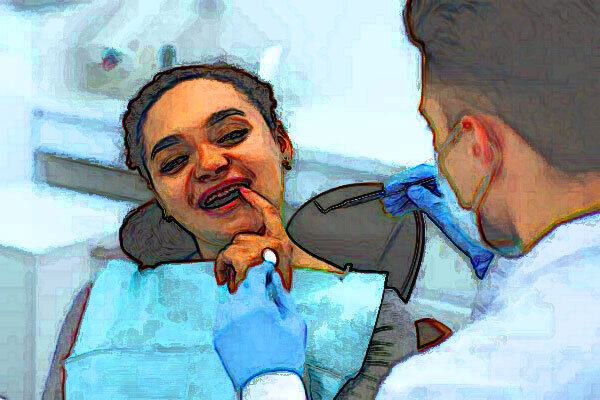Let’s Talk About Sleep Apnea
What You Need to Know About This Sleep Disorder and How Your Dentist Can Help
Getting a good night’s sleep is one of the most important things we can do for our health. Unfortunately, there are conditions that can get in the way of our slumber—one of them being Sleep Apnea.
Dr. Erick Nolting of Alexandria Smiles holds a special interest in treating patients with this disorder. As a member of Academy of Clinical Sleep Disorders Dentistry, American Academy of Dental Sleep Medicine, and the Minnesota Sleep Society, he is knowledgeable in this particular area of dentistry and has even achieved Diplomate status from the Academy of Clinical Sleep Disorders Disciplines.
By working together with your dentist, you can improve your sleep and wake up more rested than ever. But before we tell you how to fix the problem, let’s talk about sleep apnea and how to tell if you might be suffering from it.
What is Sleep Apnea?
Sleep apnea is a disorder in which breathing repeatedly stops and starts throughout the night. While there are three different types of sleep apnea obstructive, central (frequently found in those who have experienced a stroke or other neuromuscular diseases), and mixed—the most common of these is Obstructive sleep apnea (OSA)
OSA occurs when the upper airway has either been partly or completely blocked during sleep. When one of these episodes occurs, the diaphragm and chest muscles have to work extra hard because the pressure to open the airway increases significantly.
An episode will typically end following a loud gasp or jerk of the body. Because breathing lapses during the night continuously, sleep is interrupted and the flow of oxygen to our vital organs is reduced. Sleep apnea can affect all ages and most often occurs in those who are overweight.
Some of the symptoms you may be experiencing due to Sleep Apnea:
Excessive sleepiness during the day/fatigue
Difficulty paying attention while awake
Insomnia
Nightmares
Snoring or loud breathing through the mouth
Dry mouth and/or throat
Headaches
Weight gain
These are just some of the related issues that can accompany this sleep disorder.
Fixing the Problem
Without treating OSA, health problems such as hypertension, stroke, arrhythmias, heart enlargement, congestive heart failure, and diabetes can occur. So how can one treat the condition?
Although many suffering from sleep apnea use a device known as a CPAP to assist their breathing throughout the night, oral appliances have also been proven to be an effective treatment. By using a custom-fit device during sleep, you can maintain an open and unobstructed airway preventing the occurrence of a lapse in breathing.
There are many benefits to using a dental device for sleep apnea. Aside from being more cost effective than a CPAP machine, oral appliances work well for people that travel often, go camping, or simply don’t wish to drag around bulky equipment. For individuals currently using a CPAP, the addition of an oral appliance can further help if your treatment requires high machine pressure.
Make sure to talk to your dentist about implementing one of these appliances if you suffer from sleep apnea or are looking to improve snoring. During routine dental exams, dentists can check your upper airway and other anatomic risk factors for Obstructive Sleep Apnea and may even give you some screening questions or a questionnaire to narrow down a more accurate diagnosis.
Working Closely with Your Dentist
Regular dental visits are necessary for more than just maintaining good oral hygiene. By communicating with your dentist during exams, your overall health stands to benefit in ways you never imagined!
Kickstart your health journey today by making an appointment with us. Our team is looking forward to seeing your smile in the office soon!
Want to Learn More About Dental Care?
Here are some other posts you may want to read:
Dentistry: The Science and History Behind Dental Work
How much do you know about dentistry?
How to Prevent Childhood Cavities and Tooth Decay
Everything you need to know about cavities in children.
Celebrate ‘Wrong Way Day’ with a Lesson in Proper Dental Hygiene
A step-by-step guide on how to brush and floss your teeth correctly.






